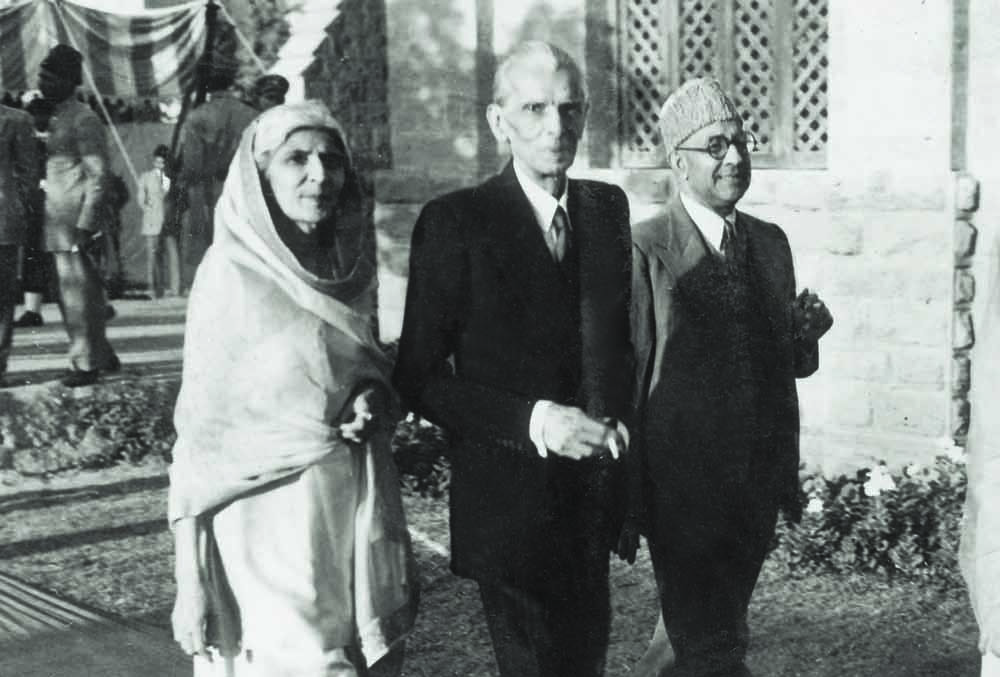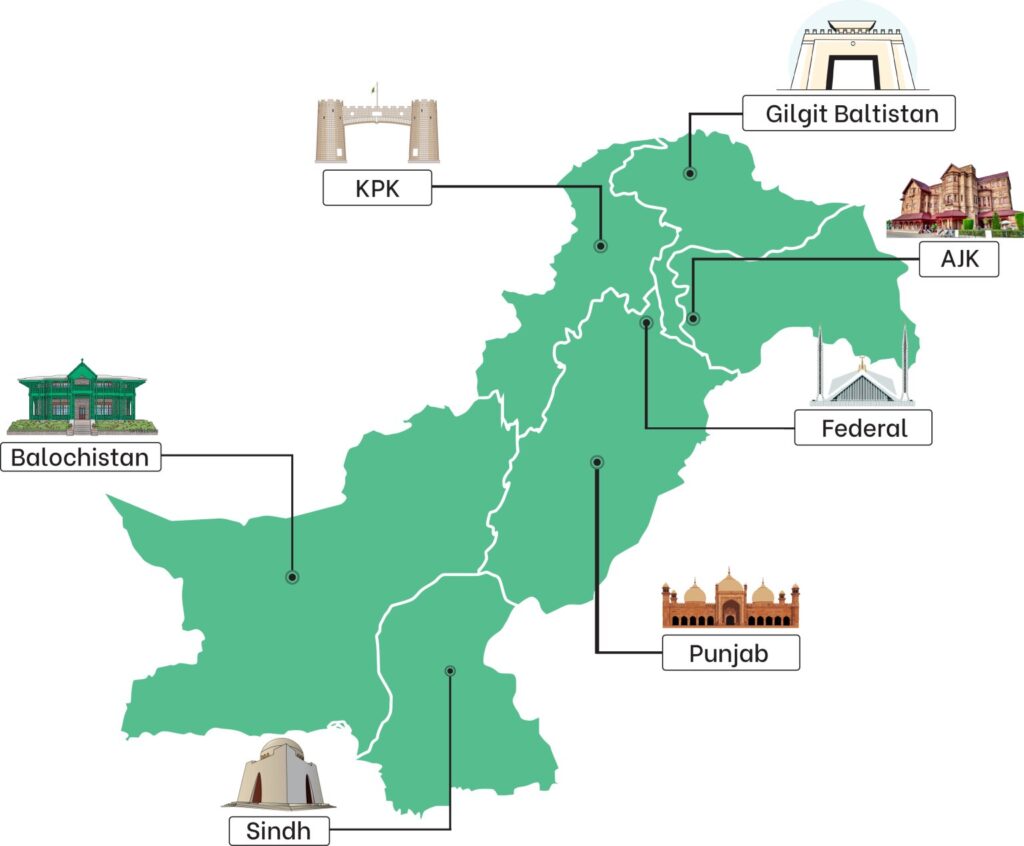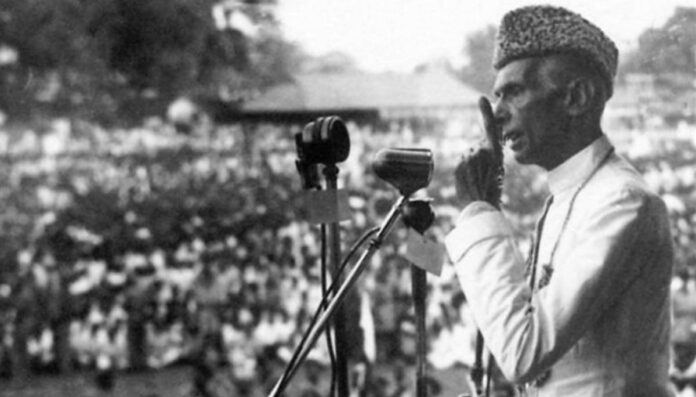Pakistan is now over 75 years old and in all these decades Pakistan has seen multitudes of ups and downs. Many enormous milestones have been achieved. Pakistan and its people have played a critical role not only in the region but in the international community as well. The evolution of Pakistan has been marked by internal challenges but a large part of its progress, or the lack of it, have been caused by world events. It has been a journey of choosing sides, deciding the fate of millions and the idea of surviving and thriving. Unfortunately, many objectives have been missed along the way and the challenges never stopped coming. Political instability, poverty, corruption, interference and violence have been the bane of the country and still continue to pose an existential threat. Some credible questions naturally come to mind, is Pakistan a failed state? is there something lacking in the people that has not allowed them to prosper like other nations? And finally, what will it take to change the nation for the better? These queries force us to reflect and rethink the way Pakistan has evolved and what can be said about the foreseeable future. Now is the time to take a pause and observe the journey of Pakistan as a single unit rather than a fractured narrative of blames and inadequacies.
Pakistan was born as an ideological state, carved out of the colonial British Raj. The country inherited hostile neighbors in the form of India and the Pashtuns around the Durand Line. The great Quaid left us early and the void of leadership has played out ever since. The most fundamental factor that can be deciphered from the history of Pakistan that changed the face of the country, its societal, economic and foreign policy is its relationship with the United States. Pakistan’s policy towards the Americans shaped the way we looked at the world and also ourselves. Our leadership and our focus shifted from our socio-economic objectives to personal goals. A lesson was learned through harsh punishments.

Liaquat Ali Khan wrote the first chapter of Pakistan’s foreign policy. He along with his team decided that Pakistan would not maintain a neutral stance; a mistake that would haunt the nation for generations to come. The then Prime Minister cancelled his tour of Moscow and went to Washington instead. In the coming years, Pakistan vowed to watch the interests of the Western world against the onslaught of communism of the Soviet Union. Pakistan thus became a frontline state. Instead of focusing on independence, economic development and industrialization, Pakistan relied on funding from the Americans in the form of USAID, PL480 and memberships of SEATO and CENTO. Pakistan was also unable to avoid the effects of the Cold War. Missile sites were installed and U2 airplanes began flying from Peshawar. Further, cheap imports from rich nations began flowing in which eliminated the incentive to industrialize the nation. Exports were ignored. Foreign policy and alliance with the West overshadowed all other areas of development and progress. And matters were about to get worse.
The Cold War saw its peak in the form of the Cuban missile crisis. Since Pakistan was a frontline a military conflict seemed obvious. The nascent nation needed a solid direction towards democracy, development and independence, but on the contrary, Ayub Khan imposed martial law, the first of many to come. The able leadership and vision of the Quaid of rule of law, democracy and adherence to good governance was replaced by lust for power, personality worship and misleading policies. Ayub khan invested the funding coming from the West towards development projects but he failed to see the overarching outlook of the future with what he was doing. He continued to weaken the democratic ideals of the nation for a good 11 years. After him came a plethora of political upheavals and then began the era of political rivalry between Z.A Bhutto and Sheikh Mujib-ur-Rehman. And with Indian interference, the country was split into two in 1971. The nation had not even recovered from this loss when General Zia ushered in another dark chapter for 10 years of military rule and political maneuvering. Z.A Bhutto was hanged and once again, funds began flowing from Washington in the wake of the Russian occupation of Afghanistan. While the foreign ministry and defense ministry thrived, the development in terms of economy, taxation, industrialization, democratization and education descended into the background.
After the dissolution of the Soviet Union, the Western world and the Americans in particular were faced with the threat of Al-Qaeda and the Taliban. Former allies were now terrorists. And then finally, on the ominous day of 9/11 attacks, Pakistan became a war front once again. This time against the War on Terror. And so, the events unfolded into another military rule of Pervez Musharraf duly supported by Washington. Bomb blasts, terrorist attacks, militants, boys from madrassahs becoming suicide bombers became the order of the day and over seventy thousand precious lives were lost.

The evil seeds of the past had to be decimated by sacrifices by the brave jawans of the Pakistan army. A sad and tragic chapter into the depth of how mistakes of today will be have to borne by youth of the future. Soon, the nation came to know after the horrendous Peshawar attack on the Army-run schools that terrorists cannot be allied with, cannot be negotiated with and cannot be tolerated. As mothers of the nation mourned the loss of children and loved ones, a new zest was born to rid the nation of this evil, with or without the help of the world.
Pakistan today is being ranked below many underdeveloped African nations. The economy is on the verge of collapse and default seems to be imminent. Education is at an all time low in comparison to other Asian nations. Unprecedented floods have ravaged any chance of economic revival at least for the next many years. Exports are stagnant. Loans are beyond limits and debt servicing is forcing the country to lose its sovereignty to financial institutions like IMF. Is this the fate we can accept?
Pakistan and its youth have yet to speak their last. This is the nation that made way for millions of refugees from India keeping the holy city of Medina in mind. This is the country that gave home to over one and a half million refugees from Afghanistan and is among the top charity giving nations of the world. This is the nation that produced world class athletes, scientists, singers, writers, poets and icons. No, the story and evolution of Pakistan is not done yet. This is the hallmark of this nation, to achieve the impossible and come back from certain darkness and oblivion.
All this nation needs now is leadership, an anchor and a rudder to redirect its course. As Khalil Gibran said, “the tortoise knows the road much better than the hare”. Yes, mistakes have been made, lessons have been learned, it is time to act. A call must pervade to launch the youth of the country towards new leadership, guided by principles of democracy, rule of law and strict adherence to merit. All this country needs to evolve is a leader and a few good honest men and women. A leader and a vision are what Pakistan needs right now. A leader who is selfless, fearless and determined.




